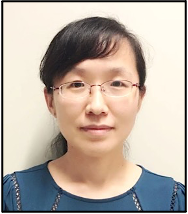Zhang Lab
The Zhang Lab studies endothelial cell identity and cardiac diseases linked to loss of endothelial cell identity.
Endothelial cell identity genes
Endothelial cells comprise the inner layer of blood vessels and participate in a wide range of physiological and pathological processes. The Zhang lab employs system biology approach to define endothelial cell identity genes and their master transcriptional regulators. The lab is studying the effect of individual regulators on endothelial cell function in cardiovascular homeostasis and disease.
Hypoplastic left heart syndrome
Hypoplastic left heart syndrome (HLHS) accounts for the majority of deaths in infants with heart defects. HLHS is characterized by marked hypoplasia of left sided structures of the heart at birth, including the left ventricle, mitral and aortic valve. Seventy percent of HLHS patients have endocardial fibroelastosis (EFE), a unique form of fibrosis involving the ventricular endocardium. EFE has been proposed to restrict ventricular chamber growth, thereby contribute to ventricular hypoplasia and limit opportunities to therapeutically promote ventricular growth.
Major research directions
- Single cell techniques to track cell lineage specification and cell identity transition in HLHS disease
- Genomic analysis to define molecular biomarkers for prediction of HLHS patient clinical outcomes
- Investigate cell identity regulation in HLHS disease to facilitate development of therapeutic strategy

Lili Zhang (Lili.zhang@childrens.harvard.edu)
Dr. Zhang is a Principal Investigator in the Department of Cardiology at Boston Children’s Hospital and a Faculty at Harvard Medical School.
Dr. Zhang received her MS, MD, and PhD trainings all from Qingdao University Medical College. At the PhD stage, she was also a Visiting Scientist at Baylor College of Medicine, where she studied immunology in endothelial differentiation. She then received postdoctoral training in cardiovascular epigenetics with a focus on endothelial cell identity regulation at The Methodist Hospital Research Institute and Weill Cornell Medical School, where she became an Assistant Professor.